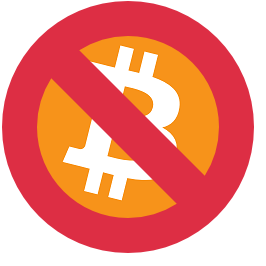
According to a recent article published by coindesk the Office of Foreign Asset Control (OFAC) is considering blacklisting cryptocurrency addresses.
https://www.coindesk.com/goodbye-fungibility-ofacs-bitcoin-blacklist-remake-crypto/
The question is does this make sense and would it be successful? Any move that prevents or blocks cryptocurrency addresses used for ransomware for example should be supported . It would make sense that addresses used for mass havoc, extortion or criminal activity be blacklisted. The question is how it could work in practice and will innocent people suffer.
A hypothetical example is an exchange that gets broken into and its bitcoin stolen. The thief sends the money to other exchanges and cashes out. The OFAC would only know of the attack typically when a crime is reported. Does the OFAC then blacklist the bitcoin address of the thief and all subsequent addresses the bitcoin was sent to? Many of the people receiving the bitcoin would probably have no conscious involvement in the crime. For example it would be like someone buying an iPhone with stolen money from a shop. The shopkeeper than gives another customer some of that stolen money as change for an unrelated purchase at the same store. An investigation occurs and the unsuspected customer than has to hand back the cash he received as change as its stolen money - proven by serial numbers on the bank notes. Unlikely example I know, but you get the picture.
What also if the velocity (number of transaction from originating bitcoin address) of a bitcoin transaction leads to 1000's of addresses being blacklisted off the back of a single single bad address. A determined thief could automate moving stolen bitcoin through 100's of wallets, dozens of exchanges and into other cryptocurrencies within a day before the crime is discovered. If the crime is reported 24hrs later then a good percentage of wallets belonging to exchanges etc could find their addresses on the OFAC list. In an armageddon scenario a malicious attacker could send bitcoin randomly to multiple large bitcoin addresses to cause chaos and cause large amounts of bitcoin to become blacklisted.
In any case the likely hood of these events occurring that affect ordinary bitcoin users is slim to zero. Third-party tools will be developed I am sure, that will allow people to check whether the sending address is blacklisted. A safety measure would be to use bitcoin good practice of only accepting coins into your newly generated bitcoin address. You can then check if the coins are clean via an OFAC or third-party tool and only then transfer to your main wallet.
Happy bitcoining and I don't see this as any real threat to bitcoin. If anything it is an absolute positive move for bitcoin. It would silence those critics who claim bitcoin is only used for illegal activity. Help AML/KYC for financial institutions involved in bitcoin and open up bitcoin to new customers who were previously unsure about how clean bitcoin activity is.
Follow me @cryptobebe
Thx for another informative post. Easy to read.
Please continue up with creating interesting content - it may be hard at the beginning to build reach and solid followers base.
Steemits needs solid content builders so just dont ever give up! :)
Downvoting a post can decrease pending rewards and make it less visible. Common reasons:
Submit
Hmmm. Wasn't the control of URLs given over to EU or a consortium of some kind in 2014 or 2015. Does that make any difference?
Downvoting a post can decrease pending rewards and make it less visible. Common reasons:
Submit
Unfortunately no. The OFAC sanction or blacklist is followed and observed by nearly every bank on the planet. If anything is on the list (i.e name, company, bitcoin address, domain name etc) then it is effectively shut out of the entire banking system globally.
Downvoting a post can decrease pending rewards and make it less visible. Common reasons:
Submit
Hi @cryptobebe. As you say, the probability of these events occurring that affect ordinary bitcoin users is zero to zero. However, there should be other security measures, tools designed for the verification that is required in real time. I do not believe that these threats will materialize. On the contrary, it could generate a growth already suspected.
Downvoting a post can decrease pending rewards and make it less visible. Common reasons:
Submit
Recognition and legitimacy of any product is an important growth factor. I agree :-)
Downvoting a post can decrease pending rewards and make it less visible. Common reasons:
Submit